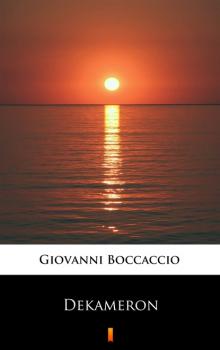Зарубежные стихи
Различные книги в жанре Зарубежные стихиSight Lines
Winner of the 2019 National Book Award From the current phenomenon of drawing calligraphy with water in public parks in China to Thomas Jefferson laying out dinosaur bones on the White House floor, from the last sighting of the axolotl to a man who stops building plutonium triggers, Sight Lines moves through space and time and brings the disparate and divergent into stunning and meaningful focus. In this new work, Arthur Sze employs a wide range of voices—from lichen on a ceiling to a man behind on his rent—and his mythic imagination continually evokes how humans are endangering the planet; yet, balancing rigor with passion, he seizes the significant and luminous and transforms these moments into riveting and enduring poetry.
The Gift of Country Life
Memories of farming in the 1940s conjure up images of horse-drawn farm machinery, grain stooks in fields, hay meadows, free-range chickens and cords of wood strategically placed for fuelling the kitchen range – all before farming became the highly technical, big-time operation it is now. Author Victor Carl Friesen was born and raised on a quarter section farm in Saskatchewan and still owns the «home place.» It is there he still goes to renew his inner being. His poems, grouped into seasonal activities or observations, celebrate the rural world. Written in traditional blank verse, his poetry includes activities of yesteryear, his personal connections to rural life and his reverence for nature. Nature, as Henry David Thoreau said, is «one and continuous.» Victor Carl Friesen lives and writes in Rosthern, Saskatchewan, but photographs nature anywhere. The first recipient of the Alberta Book Award, he is the author of five books including The Year Is a Circle.
Little Hill
Award-winning poet explores new formal terrain in seven long poems against the violence of the present political moment. "[Warren] has begun writing longer poems, putting her stamp on a running notational mode whose other practitioners include Stephanie Young, Anselm Berrigan, and Jacqueline Waters. I think you can hear the durational projects, the self-conscious day-scores, of Bernadette Mayer and of Lewis Warsh farther back in the tradition."— Brian Blanchfield , pen.org The third full-length collection from Bay Area poet Alli Warren, Little Hill comprises seven long poems written with propulsive prosody in a daybook fashion, examining our present, politically charged moment. These poems are at once energetic and contemplative, intimate and direct, as Warren focuses her attention on capitalism, gender, love, inequality, and resistance. Despite the dystopian now, Warren finds promise in the smallest human instances of tenderness, ecological connection, and political solidarity. Little Hill is about learning to live and love in the 21st century while not shying away from all there is to struggle against. Praise for Little Hill : "In Little Hill Alli Warren’s principle method is articulation of exquisite units of speech (thought) that, maintaining separation, are capable of connection. The line might be a sentence or a part of one … I mean a delicious sense of grammatical distinctness is maintained. The poet, also a lone unit, seems to exist less in relation than as that lone one, condemning this hard world with its villain work and elusive hierarchies. The language is precise, lush, unexpected and often thrilling. Articulation would seem to be the true other, or maybe nature is. The book is gift more than condemnation, though as the latter it’s unsparing. Still, it’s a gift."— Alice Notley , author of For the Ride and Benediction "The number of gasps and everything else gets lost in the concentration of Little Hill . Alli Warren keeps company with those rare poets whose every new book is their best. 'This is an old machine with a pulley / It makes music work,' Warren writes, reworking the ancient technology of poetry to a shine! Dear Poet, thank you for the wow WOW wowing!"— CAConrad , author of While Standing in Line for Death "Reading Alli Warren’s Little Hill , I find it incredible that amidst the relentless circulation of capital and commodities—and despite attempts to make all life yield to the logics of extraction, work, accumulation, and the entrepreneurial self—a remainder is created, that of poetry. Little Hill embodies a poetics of radical uncertainty, one that attends to its horrific condition of possibility and is produced through the unmooring catastrophes that define our present moment: the destruction of the earth, mass imprisonment, late-capitalism—the litany does not end there. 'I saw the death of the earth in a child’s toy,' she writes. Everywhere the speaker looks there is 'congealed shit, sometimes on sale.' Yet yearning, even as it is raised tentatively, is not crushed. In and against it all, a question is raised—the question of what it means to love in times of terror."— Jackie Wang , author of Carceral Capitalism
Commando
E’mon Lauren’s poems take artifacts, language, and ephemera from life on Chicago’s Southside and Westside to create a manifesto of survival and growth. These poems from Chicago’s first Youth Poet Laureate grapple with sexism, racism, love, and class with a style that announces Lauren as a poet to watch. Commando is an aesthetic stick up, hallelujahs in a handbag with a handgun. The first collection from the city's first youth poet laureate is a manifesto for a solider at war.
Это сама поэзия
Стихи двух немецких поэтов разных эпох, непохожих, но очень талантливых. Книга задумывалась, как стихи Рильке. Однажды увидел два перевода баллады «перчатка» Жуковского и Лермонтова. Они отличались. Решил узнать, кто перевёл точнее и сам взялся за перевод. Так появились мои переводы Шиллера. Решил включить их в книгу. Рильке удивительный поэт. Лучше Марины Цветаевой о нём не скажешь:» вы – воплощенная поэзия, должны знать, что уже само Ваше имя – стихотворение.» «Вы – воплощенная пятая стихия: сама поэзия.» Восхитительные, очаровывающие стихи, они приводят в восторг. Я специально оставил первые варианты, чтобы читатель видел, как не просто добраться до сути стихов Рильке. Кроме того неточные переводы, порой, красивее точных. Я не знаю ни одного перевода Цветаевой, и только два Пастернака, дружившего с Рильке. Приятного чтения.
The Haiku Apprentice
* This story of learning to write haiku allows any newcomer to learn the basics and the experienced to enjoy a fresh approach * Readers are easily encouraged to read more haiku or to even write it for themselves or others * The author's new friends show the joys of pursuing classic arts even in very modern times









